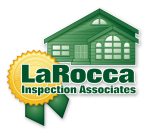
Having worked in the home inspection industry for over 8 years, I have fielded a few calls from buyers regarding minor issues that they noticed shortly after moving into their new home(s). Issues such as: “the oven doesn’t keep a steady, constant temperature, [or] the carpet is stained where the last owner’s couch was placed.” They wonder why those items were not mentioned in the inspection report. Many buyers and some REALTORS® are not aware of the specific tasks the inspector is required to perform during the property inspection.
 There are guidelines in the California Real Estate Inspection Association (CREIA) Standards of Practice, which define a real estate inspection in the following terms:
There are guidelines in the California Real Estate Inspection Association (CREIA) Standards of Practice, which define a real estate inspection in the following terms:
- … [A] survey and basic operation of the systems and components of a building, which can be reached, entered, or viewed without difficulty, moving obstructions, or requiring any action, which may result in damage to the property or personal injury to the Inspector.
- The purpose of the inspection is to provide the Client with information regarding the general condition of the building(s). Cosmetic and aesthetic conditions shall not be considered.
- [The] inspection report provides written documentation of material defects discovered in the inspected building’s systems and components which, in the opinion of the Inspector, are safety hazards… not functioning properly, or appear to be at the ends of their service lives. The report may include the Inspector’s recommendations for correction or further evaluation.
- Inspections performed in accordance with these Standards of Practice are not technically exhaustive and shall apply to the primary building and its associated primary parking structure.
The standards spell out what items to inspect those not required to be inspected. For instance, in regards to the “Foundation, Basement, and Under-Floor areas” the inspector is required to inspect the “Foundation system, Floor framing system, Under-floor ventilation, Foundation anchoring and cripple wall bracing, Wood separation from soil, and Insulation.” However the “inspector is not required to: Determine size, spacing, location, or adequacy of foundation bolting/bracing components or reinforcing systems, [or] Determine the composition or energy rating of insulation materials.” Standards exist for each system the inspector checks and include a list of 22 limitations, exceptions and exclusions such as:
- Auxiliary features of appliances beyond the appliances basic function
- Determining compliance with manufacturers’ installation guidelines or specifications, building codes, accessibility standards, conservation or energy standards, regulations, ordinances, covenants, [etc]
- Determining adequacy, efficiency, suitability, quality, age, or remaining life of any building, system, or component, or marketability or advisability of purchase.
- Dismantling any system, structure, or component or removing access panels other than those provided for homeowner maintenance.
The CREIA Standards of Practice can be viewed in its entirety and downloaded from www.creia.org
Typically an inspector will identify a problem and inform his client of the severity of the issue to the best of his ability and responsibility based on the guidelines stated in the above standards.
If the situation is severe, or if special tools are needed such as a camera to look inside a chimney flue, or special knowledge and testing is required to determine if a material on the wall is mold or not, the inspector will recommend that the appropriate specialist be called in to perform a more detailed investigation and evaluation of that specific situation. Having a specialist provide a more detailed evaluation of a specific system protects both the buyer and the seller by correctly identifying the true condition of the system and any related costs of repairs.
April Kass – LaRocca Inspections

